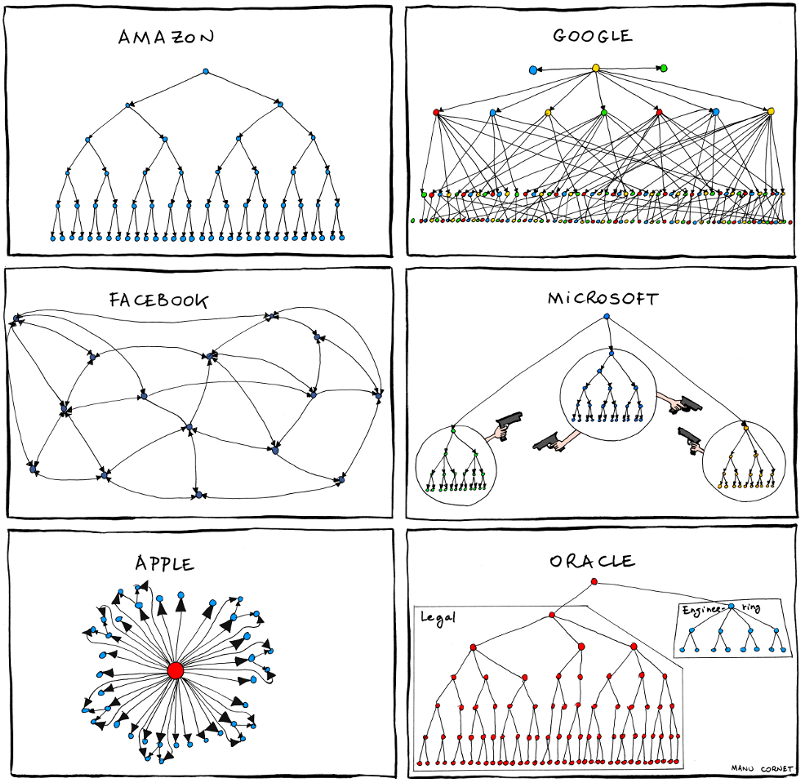I learned it by watching you.
In the late eighties, there was a reasonably famous anti-drug commercial. Maybe you’ve seen it. Or maybe you weren’t born yet in which case I feel old. Thanks for that.
A father busts into his son’s room and confronts him with a cigar box. He wants to know where his kid got the pot and he wants to know where he got the idea that it was okay to do drugs. The kid, flustered, blurts out: “I learned it by watching you!”
The commercial doesn’t hold up over time. The reactions from the dad are choppy. The over acting from the kid, comical. The whole thing seems very silly 30 years later. But it touches on something most seasoned leaders know:
You manifest what you model.
Your people are not only watching your every move, they are emulating you. And, unfortunately, you don’t get to pick and choose which parts they copy.
If you’re a collaborative leader who values consensus, there’s a good chance you see this reflected in your team. They solve problems together. They are collegiate and respectful when they disagree. And while they don’t always move super fast, they have a good foundation for getting to positive outcomes.
However, we’re not always the best versions of our selves. We’ve talked before about how you bring your whole self to work. Even when you aren’t feeling collaborative or teamy.
There are times when you are downright pissed off. When you are angry that a project isn’t going well, or frustrated that your consensus-loving team is taking a month to design a new feature. There are times, quite frankly, when you will lose your shit as a leader.
And in these shit-losing moments, the exact same elements apply. Your team pays attention. They watch you. They watch the leaders around you. They notice everything. They wait for what happens next.
The microscope of leadership
Humans are funny little monkeys. If there’s a monkey in charge, we watch that monkey more than the others. We are curious about that monkey. And we pick up our cues about how we should behave from that monkey.
Once your team stops trusting other teams, they start trying to solve all problems on their own. Pretty soon, you find distinct teams are hiring for redundant functions.
Leading a large team of people can feel like being on your own reality TV program. The cool part is that folks are paying attention. They want to know what’s on your mind, how you feel about a particular project, or the backstory behind a recent leadership decision.
But there are other, less cool, parts.
Let’s say your team is crunching on a bunch of deadlines all at once. And you are stressed. Not little s stressed. Capital S, capital everything STRESSEDDDDD. The D’s at the end are for extra stress.
In a team meeting, you ask for updates on a cross-functional initiative. Your team relies on another team to move things forward. Bad news. The other team hasn’t done their part.
Fuck, you say in your head.
That team is so useless, you say out loud.
Your team was paying attention before. They caught the part where you were fired up about an initiative. They caught the eyebrow arc when you wanted to know more about that engineering estimate. And they, for sure, caught that last bit where you trash talked another department.
And now, as the saying goes. It. Is. On.
My team vs. everybody
Does your team seem stressed out? A little crispy at the edges? Are they fumbling the easy and obvious stuff? Are those little fumbles turning into bigger fumbles? Are you fighting other departments instead of your competitors?
Uh oh. You’re in trouble.
Just like your wins compound, so do your losses. Pretty soon, you’ve got a team that not only can’t work together. You’ve got a team that doesn’t want to work together.
The departments splinter off to make their own mini teams, each with their own culture and leader. And those leaders, when asked about other teams, reinforce your combative culture.
That team is so useless.
Once your team stops trusting other teams, they start trying to solve all problems on their own. Pretty soon, you find distinct teams are hiring for redundant functions. Marketing has their own web development organization, so they don’t have to ask web dev for support.
Your leaders teach their teams not to rely on other teams. They can’t scale. The people on those teams are angry.
They are working twice as hard as everyone else. They are doing it all themselves. And they have no idea what the hell those other departments even do.
But, hey, they didn’t hire em…

If you are panicked about an upcoming board meeting, so is your team. If you think it’s okay to snipe at your executive assistant, don’t be surprised to see your staff sniping at each other.
And when you look up and find yourself with a team of people who won’t work together, don’t trust each other, and make decisions from a reactionary place? You won’t have anyone else to blame.
They learned it from watching you.
This article was syndicated with permission from The Co-Pour


